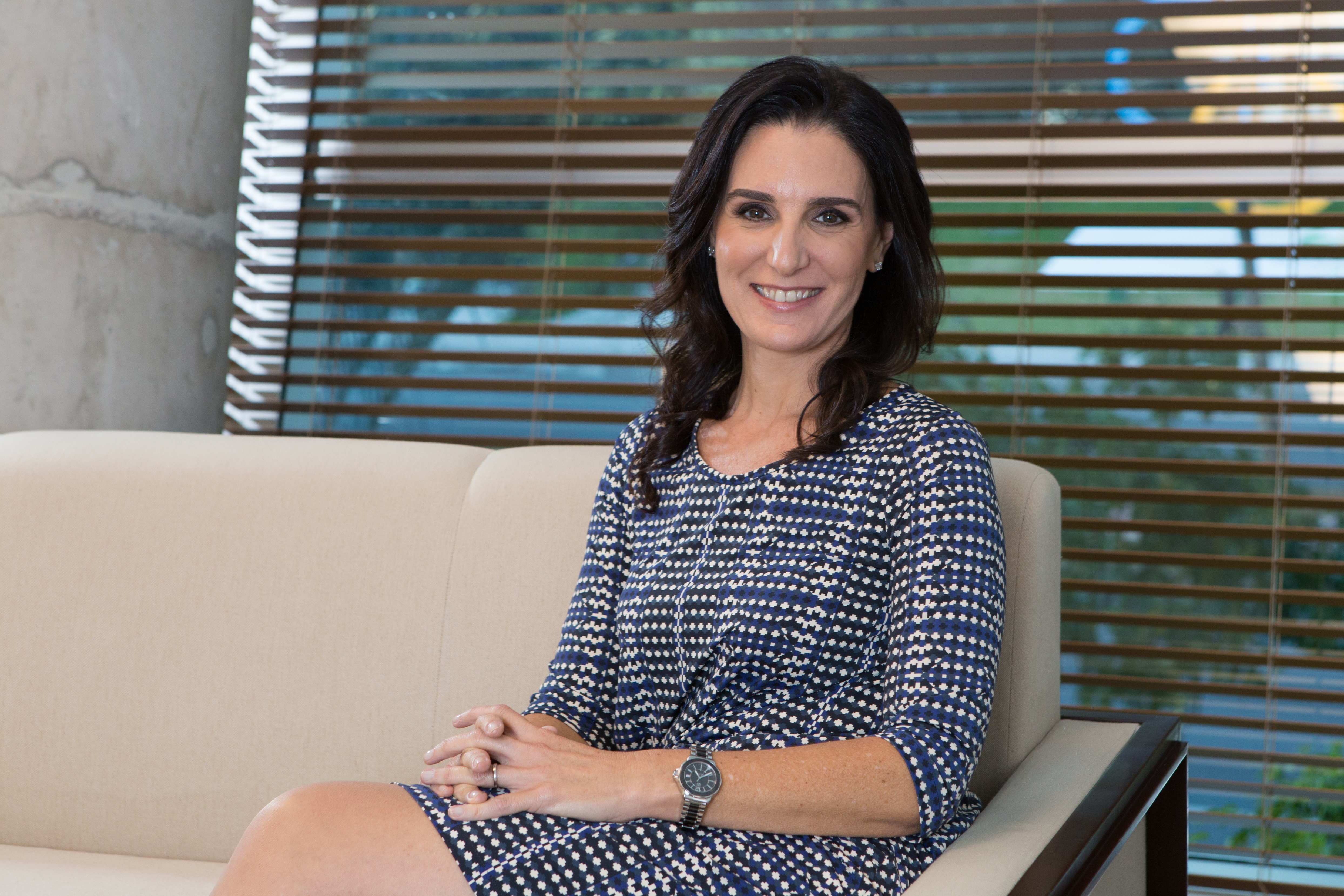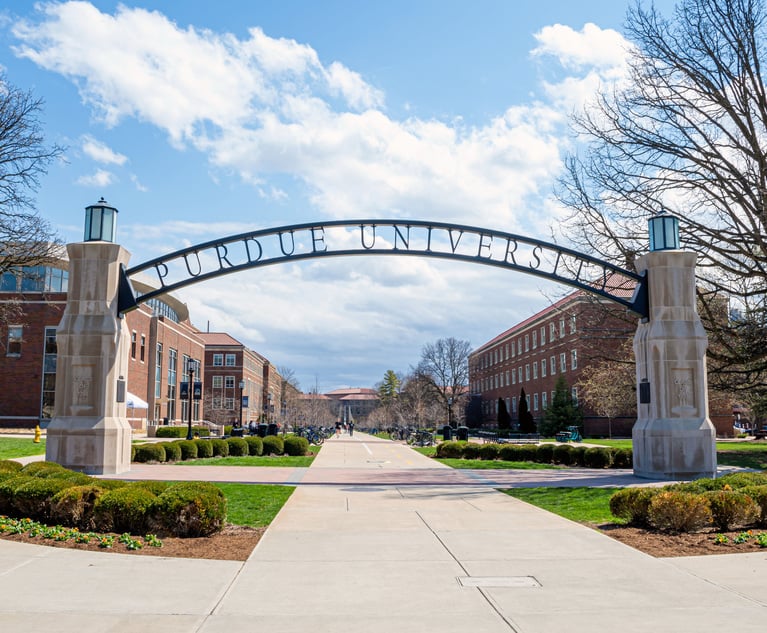Claudia Politanski, Executive Vice President Responsible for the Legal Department At Itau Unibanco
CLAUDIA POLITANSKI IS EXECUTIVE VICE PRESIDENT RESPONSIBLE for the legal department, the ombudsman office, human resources, corporate affairs and marketing…
January 12, 2018 at 09:27 AM
4 minute read
 Claudia Politanski, Head of People, Legal & Corporate Affairs at Itau Unibanco.
Claudia Politanski, Head of People, Legal & Corporate Affairs at Itau Unibanco.
CLAUDIA POLITANSKI IS EXECUTIVE VICE PRESIDENT RESPONSIBLE for the legal department, the ombudsman office, human resources, corporate affairs and marketing at Brazil's Itaú Unibanco. Politanski received a bachelor's degree in law from the University of São Paulo, an LL.M. from the University of Virginia, and an MBA from Brazil's Fundação Dom Cabral. She began working as an intern at Unibanco in 1991 in the legal advisory area when she was in the fourth year of college. Based in São Paulo, Itaú Unibanco is the largest bank in Latin America, the company says. It provides retail, corporate, investment banking and asset management services. It operates in 18 countries and has 94,779 employees, 955 branches, as well as $447 billion in assets. It is in the following markets: Brazil, Argentina, Chile, Colombia, Mexico, Paraguay, Peru, Uruguay, U.S., Bahamas, United Kingdom, Portugal, Spain, France, Germany, Switzerland, Japan and the UAE.
LEGAL TEAM: The bank has 450 internal attorneys, 700 analysts who take care of operational processes, and some 290 legal offices that support the bank externally. She oversees the legal function, often providing guidelines, and monitors legal risk. She is a member of the bank's executive committee and VP of the Brazilian Federation of Banks (Febraban).
OUTSIDE COUNSEL: "Our legal area is organized in such a way that all strategic decision-making is conducted in-house while outside legal offices represent us with the courts in the case of the massified portfolios as well as supporting us where some operational processes are involved," Politanski said.
TYPICAL DAY: There are many meetings in Politanski's typical day. "I rise early, work out every day, read the newspapers and have breakfast with my family. The working environment is a very informal one, so much so that all members of the executive committee work in the same room and we are thus able to exchange opinions and knowledge on a wide variety of matters," Politanski said. "However, decisions on matters relating to formal agendas are taken at internal or external meetings most of the time, while lunch hours are set aside largely for relationship meetings with executives from other companies and with market professionals." Politanski works at the bank's headquarters in São Paulo, but she also often attends meetings at Febraban, in connection with her role as vice president. There are business trips, too, to locations such as Brasília, Washington, D.C., and New York. She sees her role at the bank as having beneficial impact to Brazil and the world. "I am motivated by challenges—while the power to transform our country and the world into a better place for the next generations is something that drives me," Politanski said. "The fact that I work in a bank, which is a growth driver for the economy, makes perfect sense to me as it allows me to influence the building of our future based on my own beliefs and values."
PERSONAL: "I am 47, married, and have two beautiful daughters, ages 21 and 24," she said.
LAST BOOK READ: "I enjoy reading very much. I love fiction but also read many books related to work," she said. "The last one I read was about diversity and written by a [Brazilian] federal deputy by the name of Jean Wyllys."
WHAT KEEPS HER UP AT NIGHT: "In the professional field, my biggest wish is to see the results of the transformations that will occur following the enactment of the reforms currently being implemented in … Brazil, particularly labor and social security reform," Politanski said.
PRIORITIES AS GENERAL COUNSEL: "We are looking at an increasingly digital era in which the way people relate to one another has changed. We have been constantly endeavoring to track closely new tendencies," Politanski said. "In my view, it is precisely the capacity of companies to respond rapidly to changes that will guarantee the sustainability of their businesses. And with this change, all areas of the bank have been affected with no exception. For example, the legal area has an increasingly strategic role. Our lawyers have to reconcile their expertise in law with a broader scenario that includes technology, consumer behavior, entrepreneurship and innovation in order to identify the opportunities, ensure the feasibility of products, etc. Today, the lawyer can no longer restrict himself to a knowledge of the laws and jurisprudence," she said.
This content has been archived. It is available through our partners, LexisNexis® and Bloomberg Law.
To view this content, please continue to their sites.
Not a Lexis Subscriber?
Subscribe Now
Not a Bloomberg Law Subscriber?
Subscribe Now
NOT FOR REPRINT
© 2025 ALM Global, LLC, All Rights Reserved. Request academic re-use from www.copyright.com. All other uses, submit a request to [email protected]. For more information visit Asset & Logo Licensing.
You Might Like
View All
Longtime Purdue GC Accused of Drunken Driving Hires Big-Name Defense Attorney
3 minute read
GOP Now Holds FTC Gavel, but Dems Signal They'll Be a Rowdy Minority
6 minute read

LSU General Counsel Quits Amid Fracas Over First Amendment Rights of Law Professor
7 minute readTrending Stories
- 1Choice-of-Law Issues as the UCC 2022 Amendments Come into Effect
- 2Six Benefits of Taking an Opposing Medical Expert’s Deposition
- 3Ex-Prosecutor’s Trial Ends as Judge Throws Out Her Felony Indictment in Ahmaud Arbery Death Case
- 4Conversation Catalyst: Transforming Professional Advancement Through Strategic Dialogue
- 5Trump Taps McKinsey CLO Pierre Gentin for Commerce Department GC
Who Got The Work
J. Brugh Lower of Gibbons has entered an appearance for industrial equipment supplier Devco Corporation in a pending trademark infringement lawsuit. The suit, accusing the defendant of selling knock-off Graco products, was filed Dec. 18 in New Jersey District Court by Rivkin Radler on behalf of Graco Inc. and Graco Minnesota. The case, assigned to U.S. District Judge Zahid N. Quraishi, is 3:24-cv-11294, Graco Inc. et al v. Devco Corporation.
Who Got The Work
Rebecca Maller-Stein and Kent A. Yalowitz of Arnold & Porter Kaye Scholer have entered their appearances for Hanaco Venture Capital and its executives, Lior Prosor and David Frankel, in a pending securities lawsuit. The action, filed on Dec. 24 in New York Southern District Court by Zell, Aron & Co. on behalf of Goldeneye Advisors, accuses the defendants of negligently and fraudulently managing the plaintiff's $1 million investment. The case, assigned to U.S. District Judge Vernon S. Broderick, is 1:24-cv-09918, Goldeneye Advisors, LLC v. Hanaco Venture Capital, Ltd. et al.
Who Got The Work
Attorneys from A&O Shearman has stepped in as defense counsel for Toronto-Dominion Bank and other defendants in a pending securities class action. The suit, filed Dec. 11 in New York Southern District Court by Bleichmar Fonti & Auld, accuses the defendants of concealing the bank's 'pervasive' deficiencies in regards to its compliance with the Bank Secrecy Act and the quality of its anti-money laundering controls. The case, assigned to U.S. District Judge Arun Subramanian, is 1:24-cv-09445, Gonzalez v. The Toronto-Dominion Bank et al.
Who Got The Work
Crown Castle International, a Pennsylvania company providing shared communications infrastructure, has turned to Luke D. Wolf of Gordon Rees Scully Mansukhani to fend off a pending breach-of-contract lawsuit. The court action, filed Nov. 25 in Michigan Eastern District Court by Hooper Hathaway PC on behalf of The Town Residences LLC, accuses Crown Castle of failing to transfer approximately $30,000 in utility payments from T-Mobile in breach of a roof-top lease and assignment agreement. The case, assigned to U.S. District Judge Susan K. Declercq, is 2:24-cv-13131, The Town Residences LLC v. T-Mobile US, Inc. et al.
Who Got The Work
Wilfred P. Coronato and Daniel M. Schwartz of McCarter & English have stepped in as defense counsel to Electrolux Home Products Inc. in a pending product liability lawsuit. The court action, filed Nov. 26 in New York Eastern District Court by Poulos Lopiccolo PC and Nagel Rice LLP on behalf of David Stern, alleges that the defendant's refrigerators’ drawers and shelving repeatedly break and fall apart within months after purchase. The case, assigned to U.S. District Judge Joan M. Azrack, is 2:24-cv-08204, Stern v. Electrolux Home Products, Inc.
Featured Firms
Law Offices of Gary Martin Hays & Associates, P.C.
(470) 294-1674
Law Offices of Mark E. Salomone
(857) 444-6468
Smith & Hassler
(713) 739-1250






